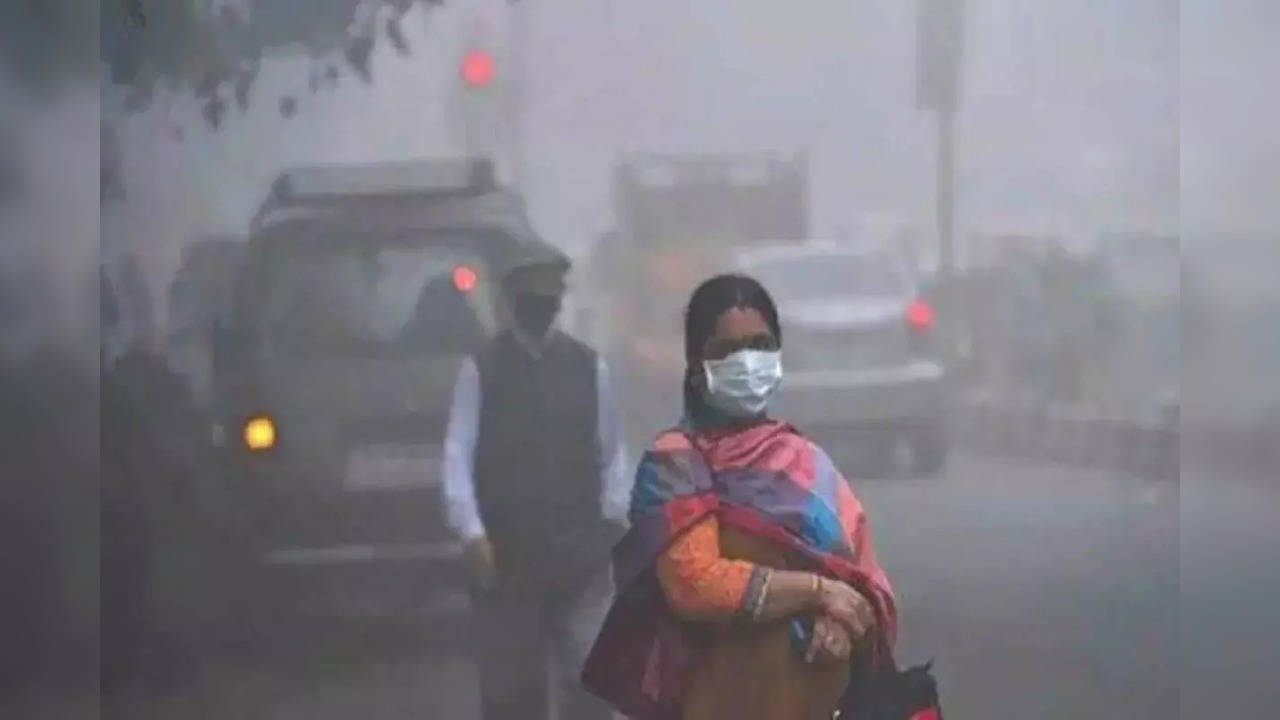Revised Graded Response Action Plan comes into effect in Delhi; check out four stages, restrictions
The Graded Response Action Plan (GRAP) is a set of anti-pollution measures that have been divided into four stages based on the Air Quality Index.

Representative Image
Photo : PTI
New Delhi: The Revised Graded Response Action Plan (GRAP) for combating winter pollution in Delhi came into effect on Saturday. The Commission for Air Quality Management (CAQM) in the national capital decided to implement GRAP early this time as it hopes advanced precautionary measures might help in maintaining air quality in the city. GRAP is a set of measures that will be enforced in a graded manner as the air quality deteriorates.
As per the revised GRAP, anti-pollution measures have been classified into four categories based on the four stages of air quality such as - Stage I - 'Poor', if the Air Quality Index (AQI) is from 201-300; Stage II - 'Very Poor' if AQI ranges from 301-400; Stage III - 'Severe', if AQI is 401-450; and Stage IV - 'Severe Plus', if the AQI is above 450. Though the AQI is yet to cross the 201 mark, the officials decided on early implementation of the GRAP.
- Stage I - Strict actions will be taken against polluting industries, vehicles and stubble and biomass burning.
- Stage II - The use of coal and firewood, including in tandoors in hotels, restaurants, open eateries, and diesel generator sets will be banned. However, diesel generators might be allowed in emergency situations.
- Stage III - This stage becomes effective when the air quality deteriorates to the 'severe' category. All construction and demolition activities in NCR will be banned. Essential projects such as railways, metros, airports, ISBTs, national security/defence-related projects of national importance and non-polluting construction activities are exempted.
- Restrictions on BS III petrol and BS IV diesel light motor vehicles (four-wheelers) under Stage III will also be implemented as the government decides.
- Ban will be enforced on brick kilns, hot mix plants and stone crushers not operating on clean fuels, and mining and associated activities in NCR.
- Stage IV - When air quality deteriorates beyond 'severe' category, the entry of trucks into Delhi, and the plying of Delhi-registered diesel-run medium goods vehicles and heavy goods vehicles in the national capital will be banned.
- Diesel light motor vehicles, except BS-VI vehicles and vehicles engaged in essential services, will also be taken out of Delhi roads.
- Operation of industries running on fossil fuels will be stopped and construction and demolition activities of public projects such as highways, roads, flyovers, over bridges, power transmission and pipelines will be put on hold.
- In this stage, 50 percent of staff can be allowed to work from home in public, municipal and private offices. Measures such as the closure of educational institutions and the plying of vehicles on an odd-even basis can also be adopted in this stage.
A green war room that will monitor the city's air quality round the clock will start operating from Monday. The war room will have nine scientific experts who will closely monitor the real-time status of the city's pollution and also track the source of pollution. The government will decide on their plan for the next day based on the input from these experts.
Trending:
End of Article
Subscribe to our daily Newsletter!





Related News





Argument Over Cigarettes Leads To 2 Men Being Stabbed In Delhi

Delhi: Juvenile Shoots Woman Dead After She Objects To Marriage With Minor Daughter

Delhi: Rain Lashes Parts Of National Capital, Bringing Respite From Rising Temperature

'Just Interested In Power': Delhi HC Raps Kejriwal Govt Over Shortage Of Books In MCD Schools

Rains Likely in Delhi, Noida, Gurugram Today; Here's What IMD's Weather Forecast Says









